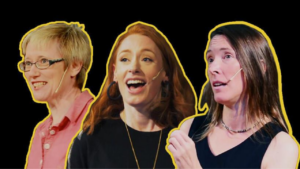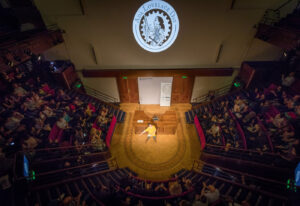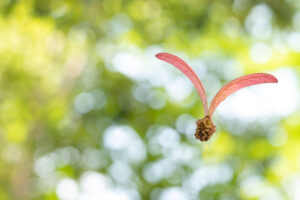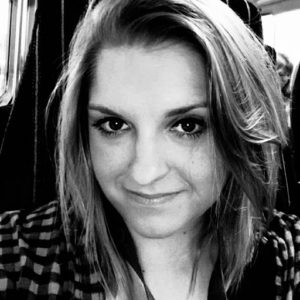 The Ri is celebrating 100 years since Joan Evans gave the first presentation by a woman, making it the perfect venue for the 15th Ada Lovelace Day.
The Ri is celebrating 100 years since Joan Evans gave the first presentation by a woman, making it the perfect venue for the 15th Ada Lovelace Day.
This year is marks the 100th anniversary of the first presentation by a woman at the Royal Institution – archaeologist Joan Evans, who was an expert in English jewellery from the fifth to the 17th centuries, gave a Discourse in June 1923 titled “Jewels of the Renaissance” – making it the perfect setting for the 15th celebration of Ada Lovelace Day!
Ada Lovelace herself attended lectures at the Ri, in the very theatre where ALD 2023 will be taking place this year and the same theatre where Michael Faraday first demonstrated many of his discoveries. The Ri is still home to his original laboratory and his collection of notes, which are preserved as part of their internationally significant collection, on display in the Ri’s free museum.
Lovelace was keen to receive tutelage from Faraday, writing to him several times, and their letters can still be seen today at the Institution of Engineering and Technology (IET). Sadly for Lovelace, Faraday declined her request.
The Ri is not just a home for science where everyone is welcome, it continues to champion the known and unknown contributions of women to science. It has hosted many amazing female speakers, including:
- Tara Shears – Antimatter: Why the anti-world matters
- Kate Lancaster – The extreme world of ultra intense lasers
- Eleanor Maguire – The neuroscience of memory
- Hannah Fry – Should computers run the world?
- Aoife McLysaght – Copy number variation and the secret of life
And if that’s not enough inspiration, the Ri has this compilation of 10 mind-blowing science talks by women.
Notable members and fellows of the Royal Society include Katherine Lonsdale, a pioneering scientist, especially known for her groundbreaking work on x-ray crystallography, who worked at the Ri at numerous points throughout her career; Angela Burdett-Coutts, “the wealthiest woman in England after Queen Victoria” and campaigner for children’s education, whose application was signed Michael Faraday; and Agnes Clerke, renowned astronomer and author of A Popular History of Astronomy during the Nineteenth Century.
If podcasts are more your speed, then try these two episodes: Tackling climate change with innovation features the Ri’s Director Katherine Mathieson in conversation with Alyssa Gilbert, the Director of Undaunted, a partnership with Imperial College London that supports climate-positive startups; How did patriarchy develop across the world?, in which award-winning science journalist Angela Saini and former Australian prime-minister Julia Gillard discussed the roots of gendered oppression.
The Ri has long championed women in science and it’s an honour for Ada Lovelace Day to be returning to the venue for the third time with our science cabaret, featuring some of the smartest and most innovative women in STEM from across the UK: Prof Jennifer Rohn, urologist; Dr Anjana Khatwa, Earth scientist and presenter; Dr Sophie Carr, mathematician; Dr Aarathi Prasad, writer, broadcaster, and geneticist; Dr Azza Eltraify, senior software engineer; Dr Antonia Pontiki, biomedical engineer; Rosie Curran Crawley, presenter.
Join us in person or online, on Tuesday 10 October for seven fascinating talks that will entertain, inform and surprise you.
 Thanks to generous support from
Thanks to generous support from 
 By Rebecca Whitworth, Manager, Software Engineering at Red Hat.
By Rebecca Whitworth, Manager, Software Engineering at Red Hat. 